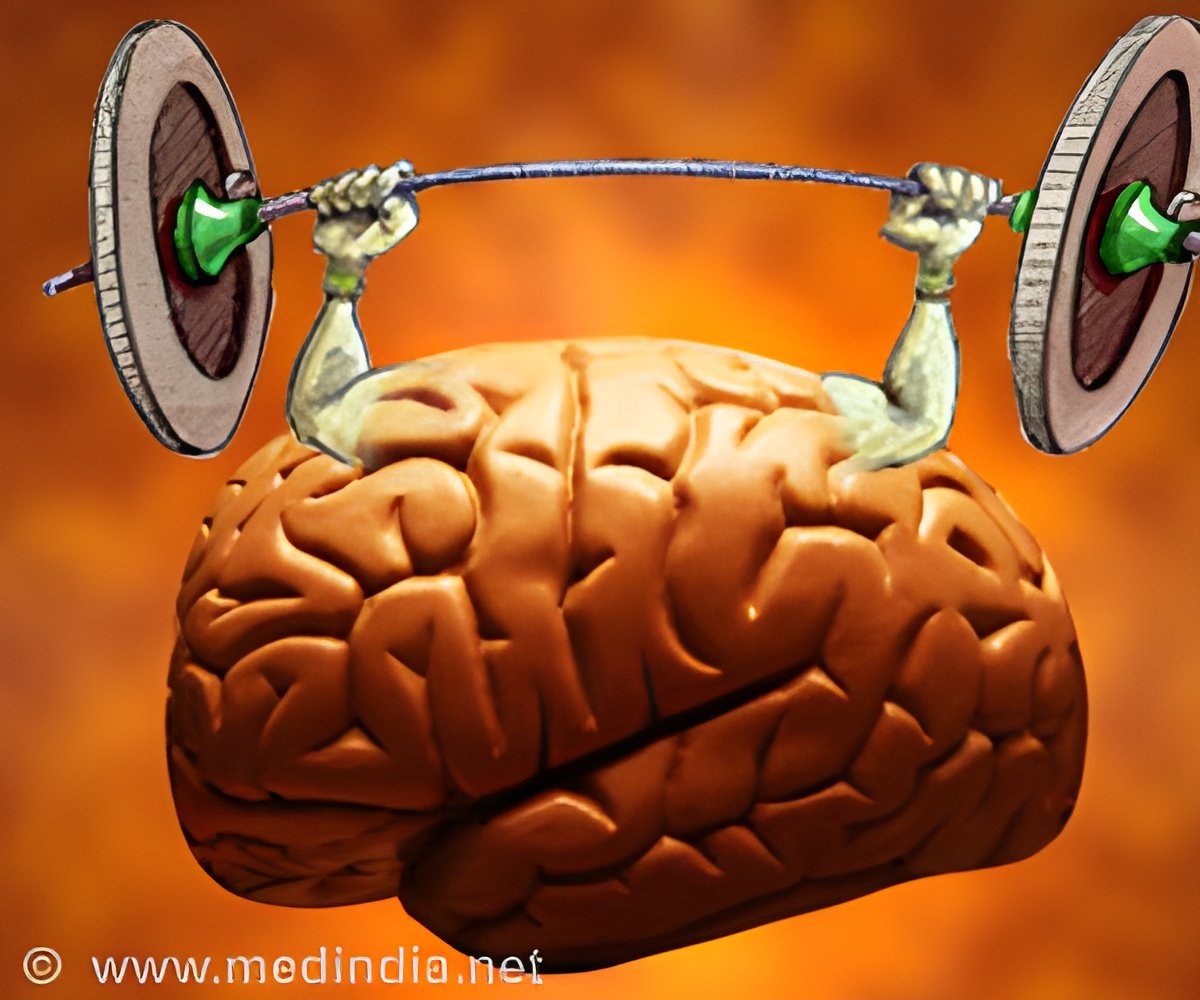A recent review reports that short bouts of moderate intensity exercise helps improve self-control and may be used to treat mental disorders like ADHD and Alzheimer's in future.

Out of the 24 studies reviewed, 19 focused on the effects of short-term exercise lasting for single 10-40 minute session while only five studies analyzed the impact of long-term exercise sessions.
Based on their analysis, the authors conclude that the self-control and will power of people in all age groups are elevated after short bouts of moderate intensity exercise. Lead author of the study, Lot Verburgh, attributes this improvement of high order functions to increased blood circulation in the frontal cortex of the brain, which is responsible for these functions.
Researchers thus opine that exercise will not only be a treatment option for heart disease but very soon it will also be used for treating ADHD and Alzheimer's.
Source-Medindia
 MEDINDIA
MEDINDIA



 Email
Email




